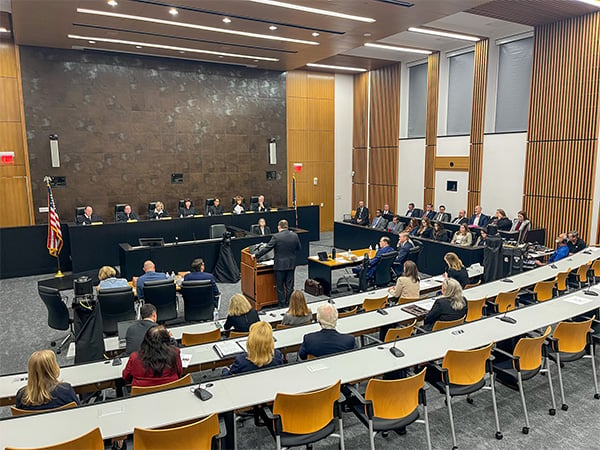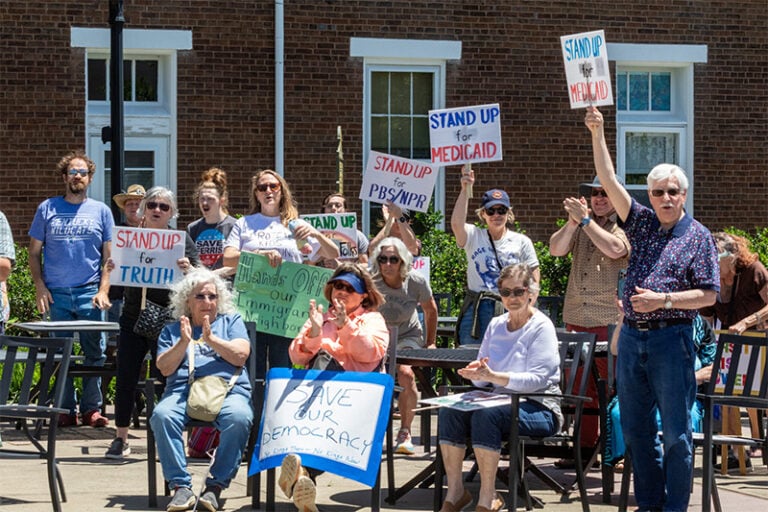State Rep. Dennis Keene (D-Wilder) is working with a bipartisan group of members of the Kentucky House of Representatives to produce a compromise bill that will address the growing heroin problem in Northern Kentucky and throughout the Commonwealth.
Keene filed House Bill 53 with the hope of addressing the growing heroin problem. Several other House members also filed legislation, so Keene is meeting with those members in Frankfort to seek a single piece of legislation that can be passed during this year’s legislative session. The first meeting of the group of legislators met Thursday in Frankfort.
“The consequences of heroin use are severe in our region,” Keene said. “In Northern Kentucky alone, the number of court cases relating to heroin has increased 500 percent from 2008 to 2012. This is a priority issue for me and we must pass a bill this session to begin to address the problem.”
House Bill 53 includes the following provisions for dealing with the heroin problem:
– Increased jail time for drug traffickers;
– If a victim dies because of an overdose; trafficker would be charged with criminal homicide;
– Officer protection through needle stick immunity;
– Incentives to cooperate with law enforcement;
– Increased treatment coverage (treatment, needle exchange option, parental rights, access to overdose antidote).
“Researchers at the University of Kentucky estimate that drug abuse overall costs Kentucky $6 billion annually in health care, treatment, accidents and other expenses,” Keene said. “The time is now to pass meaningful legislation that will address the problem and provide support for law enforcement and our judicial system when dealing with this massive issue.”
The General Assembly reconvenes Feb. 3 for the remainder of the 2015 legislative session.
From Rep. Dennis Keene


















At a recent forum on the Heroin problem in Northern Kentucky put on by the Covington Business Council, Covington Police Chief Spike Jones admits that prohibition is a failed policy and that,” Putting handcuffs on addiction isn’t going to cure, or fix addiction.” He is absolutely right. President Nixon’s own commission, chaired by Nixon appointees, reported in 1974 that treating addiction as a criminal problem was a mistake and that, that addiction was a medical problem and should be treated as such. Kentucky can and should take a different approach if it wants to get a real handle on it’s drug problem.
The country of Portugal had all the same problems with drugs and addiction as any other modern country. At a time when Portugal was being squeezed by the economy and was experiencing increasing HIV/AIDS cases they decided to abandon the old arrest and imprisonment policy and go a different direction. Portugal in 2001 ended the crime of possession and embarked on a new policy. Possessing and using small amounts of drugs is no longer a crime. Persons caught with small amounts of drugs, instead of having their drugs confiscated, are given a citation and required to appear before a panel made up of a psychologist, social worker and a legal advisor to assess treatment options. Treatment can be refused without criminal sanction.
July first was the 12th anniversary of that huge change in policy. The results of Portugal’s experiment are in and the policy is considered a resounding success. Rates of lifetime use of any illegal drug among seventh to ninth graders fell from 14.1% to10.6%. Lifetime heroin use fell from 2.5% to 1.8%. New HIV infections in drug users fell by 17% and deaths related to heroin and other drugs were cut by more than half. The number of people in treatment for drug abuse doubled and money saved on law enforcement was put back into rehab making rehab more available to more citizens.
I hope that our leaders can come up with a successful way to handle this problem but no policy will be successful if it’s based on the old policy of prohibition. We are just squeezing the sausage and addicts will just move to another drug and show up somewhere else. The crackdown on the prescription drug abuse sausage probably caused the swelling of the other end of the sausage into heroin abuse.
I don’t know if Portugal’s policy is right for America, but it is a resounding success and proves that there is an alternative to arrest and imprisonment. Treating addiction not as a crime but as the health problem it really is.
. The heroin problem is mostly of our own making as we ‘cracked down’ on legal pain medicine and drove many addicts and legitimate pain sufferers to the black market or to fend for themselves. Many Doctors have refused to prescribe these legal drugs out of fear of incurring the wrath of the Government.
While I agree on the need to do ‘something’, I hope our efforts are directed at those options that will improve the current situation. The current bill, with the exception of the increased jail time/ homicide charges provision, is really pretty good and mirrors some of the successful programs instituted in Portugal over the last 12 years. Increased jail time and other charges have been shown to be counterproductive in either curing addiction or the amount of the drug available and only increase law enforcement costs with no discernable benefit.